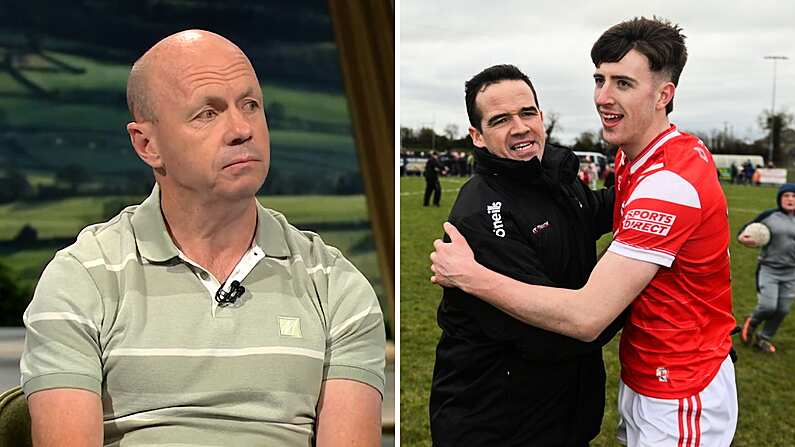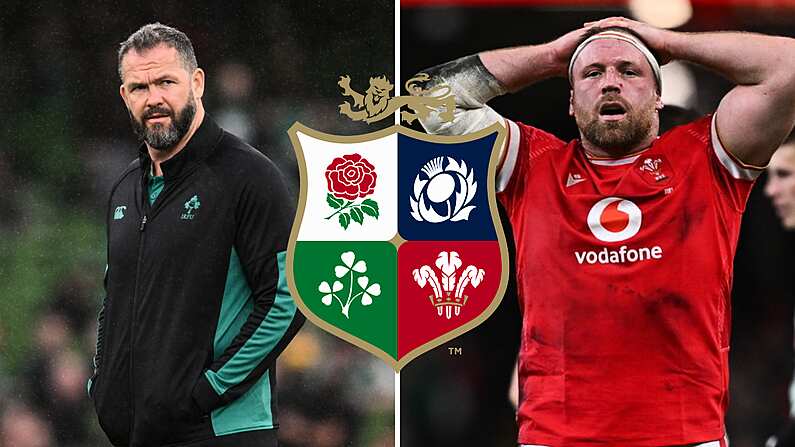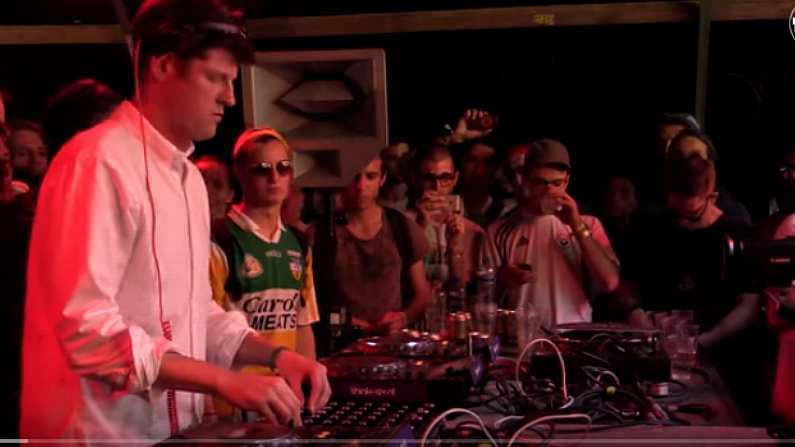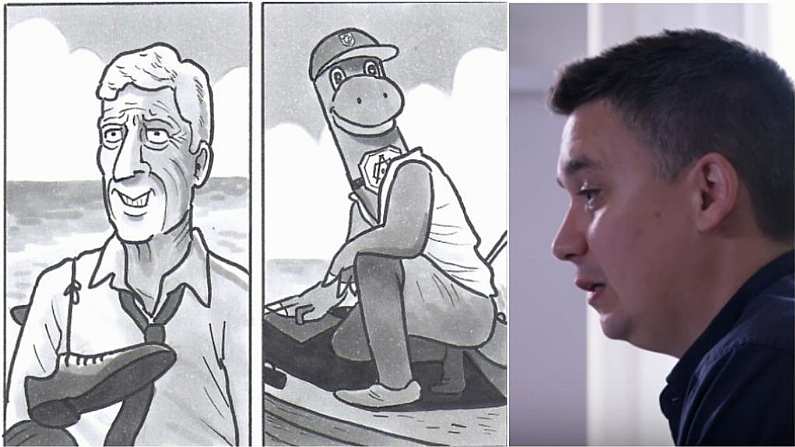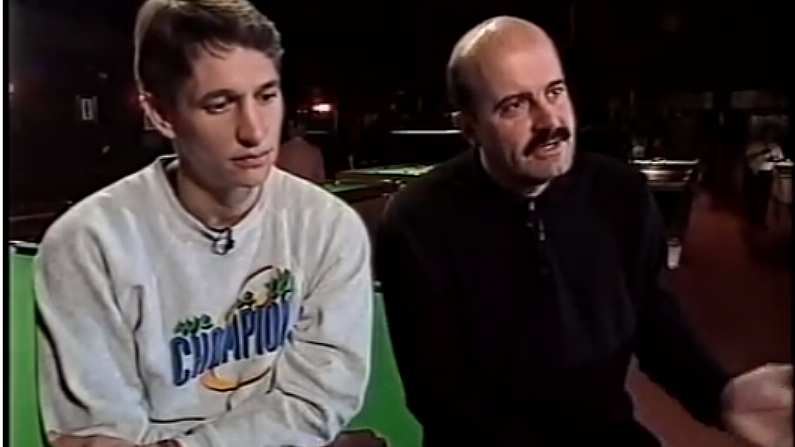This week's edition of The Reducer finally delved into an oft-cited topic: Baddiel and Skinner's Fantasy Football.
With the founding of the Premier League and its attendant safe stadia and glitzy production values, along with the shake-up of the European Cup to the soundtrack of Handel's Zadok the Preist after the Pavarotti-underscored success of Italia '90, in a few short years during the early 1990s English football quickly sloughed off the "slum sport for slum people" tag.
All of the above, along with contributions from the likes of Nick Hornby's Fever Pitch and the sales boom of magazines like Shoot, football established itself as a culture in and of itself, worth mocking, interrogating, championing and obsessing over. Among the most influential vehicles for this was Baddiel and Skinner's Fantasy Football League.
Comedians David Baddiel and Frank Skinner sat on a couch in an ersatz living room, all the while revelling in this newly-discovered realm of football culture, writing skits, and interviewing a baffling range of A-Z list of celebrities about their fantasy football team. (As the show evolved they moved further and further away from this).
It has had a huge influence: the show has been mimicked by other long-running shows like Soccer AM; its particular brand of b****r has migrated to forums, Twitter feeds and fan-produced podcasts; and fantasy football itself has become a staple of most fans' weekends.
It had some problems, however. The chiding of Jason Lee over his dreadlocks was ceaseless and Lee claimed it left him bereft of confidence and partly ruined his career. That David Baddiel once dressed in blackface to mimic Lee is typical of the carelessness with which the show treated issues of race.
Going back to the show nearly a quarter of century after it first launched, this writer was struck in reviewing old episodes to the fact that almost all members for the crowd each week were white: throw polo shirts on them instead of football jerseys and they could be mistaken for golf fans.
Issues toward race reared its head at other stages: during a car-crash France '98 episode that led to Johnny Rotten leaving the show during the break, Sylvia Kristal told the hosts that she "doesn't appreciate racism" in response to Baddiel's chiding an African fan for their outfit at a World Cup game, while Frank Skinner looked admittedly abashed when he mindlessly referred to Roddy Doyle as "Paddy".
Here's what podcast co-host Seamas O'Reilly had to say when we discussed these issues:
You worry about being churlish and you don't want to come across as a killjoy, and there is something to be said for looking at something 25 years on, on different terms. That's not excusing it. The people being hurt then probably didn't have as much of a voice as they do now to say this.
It's easy to say that a joke is just a joke if you don't have to suffer its consequences, and if you don't realise that jokes have a meaning.
There is load of this stuff: gentle blackface. I say gentle because it's not meant to be hateful, but it is ill-judged.
Most of it is just shoddy, and a product of its time.
The show was also notable for how often the show veered into farce, most infamously with the appearance of an, er, merry Brigitte Nielsen. Here Skinner is at his best: it was said of David Letterman that he and the audience were in on the joke, and that the joke was whomever Letterman was interviewing. At his best, Skinner tapped into something similar. He did in a fist-gnawingly awkward interview with Prince Naseem about buying Trevor Francis' house, and he also did it with Nielsen. (Watch from about 12 minutes in the clip below).
One other element of the show struck us as we raked back over the show: just how often the audience weren't quite on the same page as their hosts. There were frequently long silences plugged with some variation of 'oh, that went down well' from either Baddiel or Skinner, as the audience resembled a crowd sitting around waiting for Soccer AM to be invented. They presaged that show's audience by taking the Father Jack approach of merely shouting back the last thing that they had seen, giving guest Helen Chamberlain, for example, a chorus of "Torquay, Torquay" as she appeared in a Torquay shirt.
Baddiel and Skinner, however, were a step ahead most of the time. But not all of the time.
It's a great irony: the show that did more than most to advance how people talked and thought about football was sometimes undermined by the more backward elements of its time.
Listen to the full discussion on this week's Reducer Podcast.
You can subscribe to the podcast on iTunes or by searching 'The Reducer' wherever you get your podcasts.



